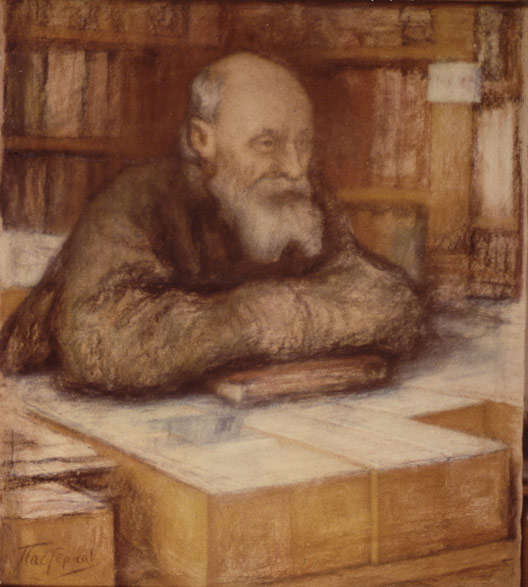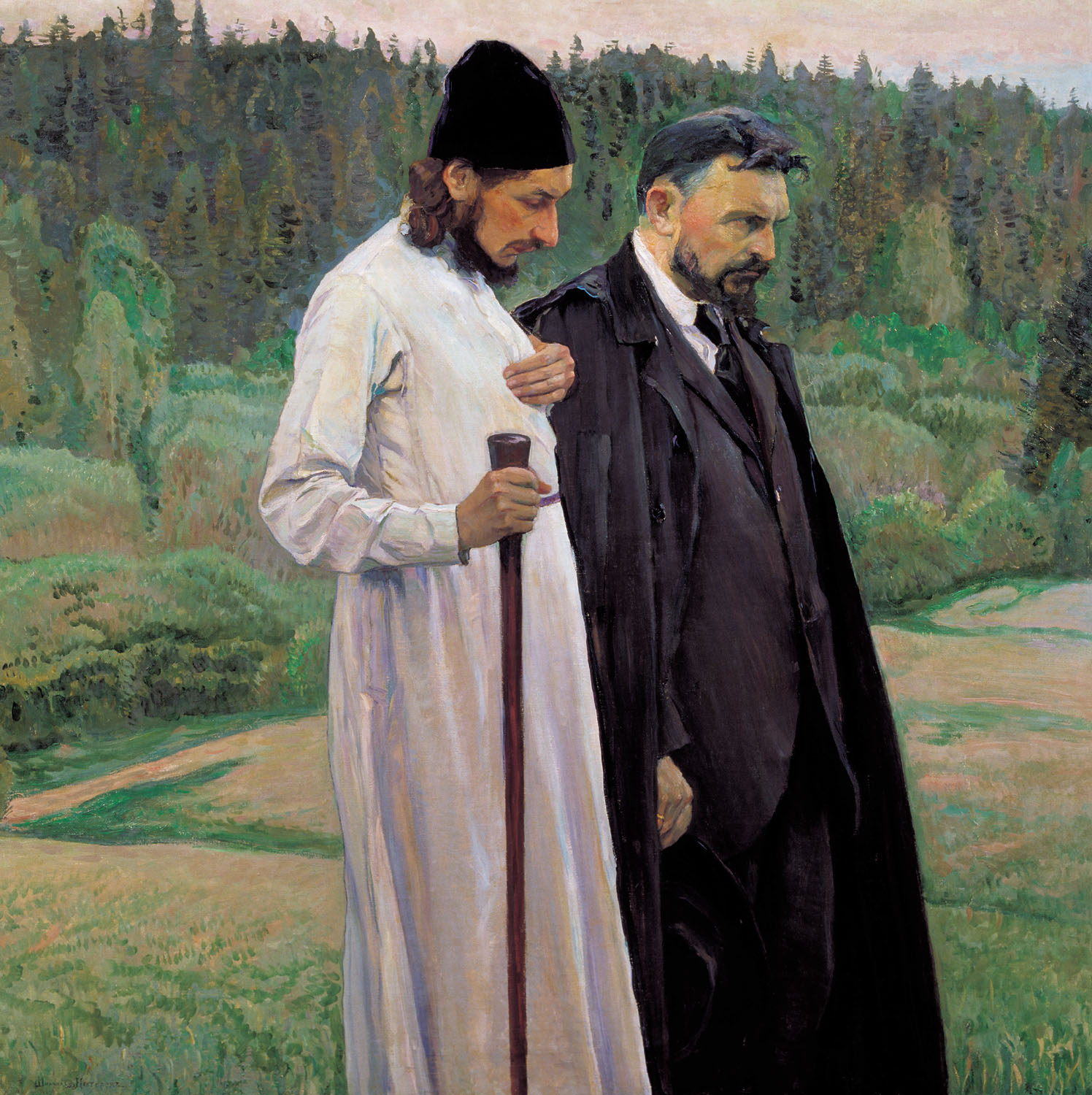 |
| Only known portrait of Nikolai Federov |
Federov's techno-utopianism also carries within it a distinctively reactionary and authoritarian quality. The common task can only be initiated after the unification of the nations of the world under the benevolent autocracy of the Tsar and the leadership of Orthodox Russia (Russian Orthodoxy has often been noted to have a peculiar messianic concept of nationalism- the Russian Empire as the only legitimate successor to the authority of Rome and Constantinople, and thus the last imperial bastion of the true Christian religion). Indeed, a major theme in his conception of the resurrection of our ancestors is that this would involve a return of true, patriarchal authority. Humanity would collectively rediscover its roles as sons and daughters, brothers and sisters, in the true human family with the return of each lost generation, and find freedom in obedience to proper authority.
 |
| Pavel Florensky (in white) and Sergei Bulgakov |
Cosmism after Federov branches in many directions, but always maintains the broad theme of perfecting the world through spiritually enlightened science. Emphasis does shift at many points though: Solovyov had little interest in science and was more concerned with utilising the occult to create a new form of androgynous human, and Bulgakov writes not of conquering nature but of developing a spiritual 'economy' of all things, understood more in the sense of husbandry than ownership and control. The overtly religious characteristics of Cosmism were essentially dismissed or actively down-played during the Soviet era, with more focus being put on the idea of engineering a new form of socialist human and perfecting the environment through central control and mass labour projects. Florensky's religious convictions were tolerated largely due to his technical brilliance, playing an important role in the electrification of Russia, though he'd ultimately be executed.
Contemporary Cosmism is still substantially more secular than it was in the past, but there has been a revived interest in the spiritual and occult writings of the Cosmists; this is perhaps because so much of their scientific thought can now be falsified (for example, Federov calls for us to build great cones that would allow us to direct the Earth's electro-magnetism and pilot the planet around the universe in pursuit of the dust of our ancestors), while the esoteric dimensions of Cosmism are something that can be taken as being 'beyond reason', and thus outside the clutches of positivist science.
The sheer optimism and vitality of Cosmism, and the surprising ease with which it combines ancient tradition with futurism, science with spirituality, is deeply appealing. It is difficult to not be thrilled by Cosmist thought, even if this is only in an aesthetic sense. In particular, the utopian (though often totalitarian) ideal of taking complete control of our own destiny and environment is intoxicating, even if it is misguided in many ways. Ultimately, the foundational ideal of Cosmism is that life can conquer death, and even if that isn't an ideal we can ever accomplish, it is very difficult to resist the urge to try.
Florensky's religious convictions were tolerated largely due to his technical brilliance, playing an important role in the electrification of Russia, though he'd ultimately be executed.
ReplyDeleteLaconic, in the best sense. Right now in the West you only get fired, but give it time...